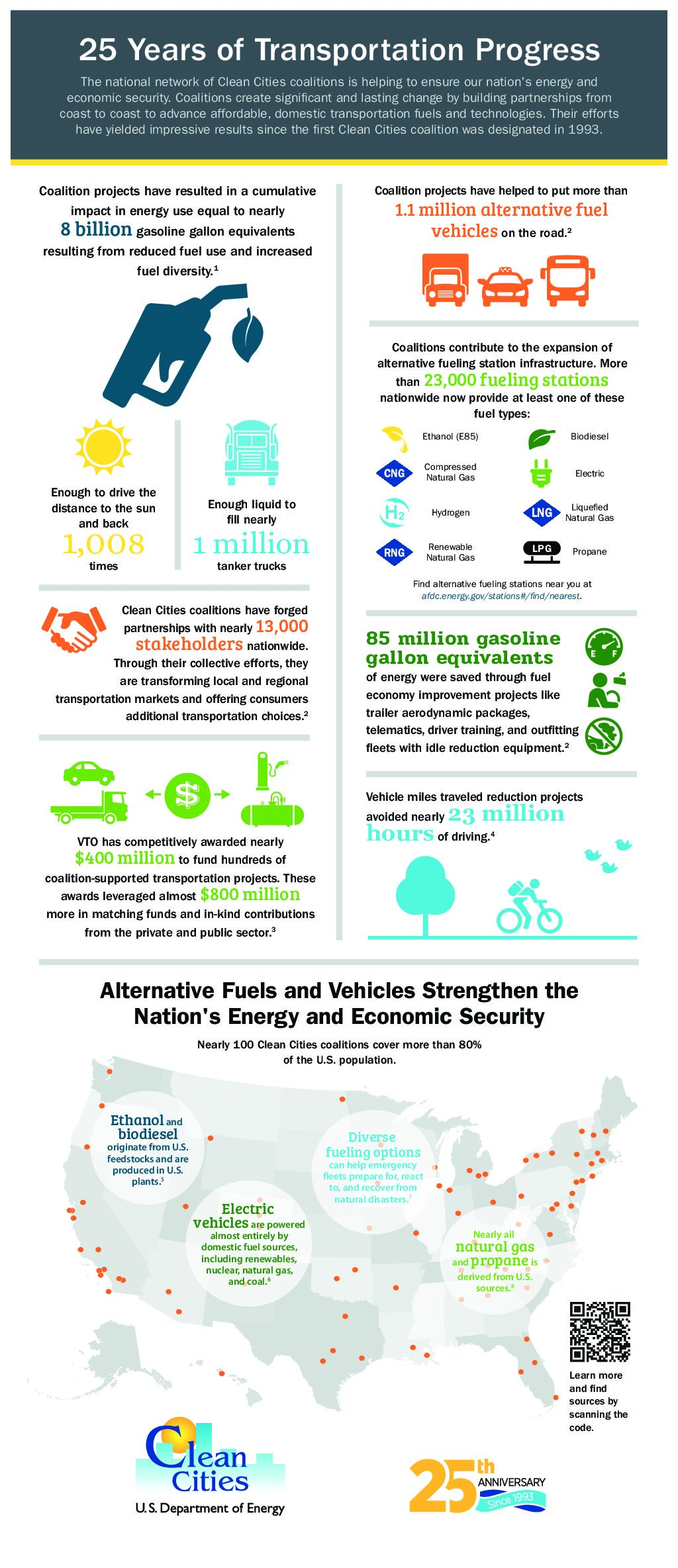Now in its 25th year, Clean Cities Coalitions have a lot to celebrate. Kicked off in 1993 by the U.S. Department of Energy, the national network has grown to nearly 100 coalitions covering more than 80% of the U.S. population. In 25 years, efforts from Clean Cities coalitions have not only helped put more than 1.1 million alternative fuel vehicles on the road, but also helped establish the fueling and charging infrastructure to support them. Clean Cities coalition activities have improved local air quality by avoiding more than 46 million tons of emissions across the US. The energy impact resulting from these efforts has steadily grown to equal one billion gallons of fuel either saved or shifted to domestic alternative fuels annually. In addition, coalition outreach and education efforts now reach an estimated 10 million people each year.
The key to Clean Cities coalition’s undeniable success and milestones remains—working one-on-one with local fleet managers to understand their operational needs and develop cost effective solutions.
Through the National Clean Fleets Partnership, Clean Cities works with some of the largest private fleets in the US to implement transportation projects. The initiative provides fleets with resources, expertise, and technical support to evaluate incorporating domestic alternative fuels and fuel-saving technologies and strategies into their operations.
Fuel economy improvement projects like trailer aerodynamic packages, vehicle telematics, driver training, and outfitting fleets with idle reduction equipment have saved over 85 million gasoline gallon equivalents of energy.
Working with fleets directly is critical to developing solutions and scaling infrastructure. One or more fleets’ commitment to use an alternative or renewable fuel—whether biodiesel, ethanol, electricity, hydrogen, natural gas, or propane—can make the business case for an independent fuel provider to then develop an alternative fuel station. Just one fleet shifting to domestic energy resources can spark a local shift where other fleets learn from their example and begin to replicate their success.
Once fueling and charging infrastructure is in place, alternative fuels and advanced vehicles can then become viable options for smaller fleets and consumers, which can create economies of scale and tipping points of demand that help transform local markets.



